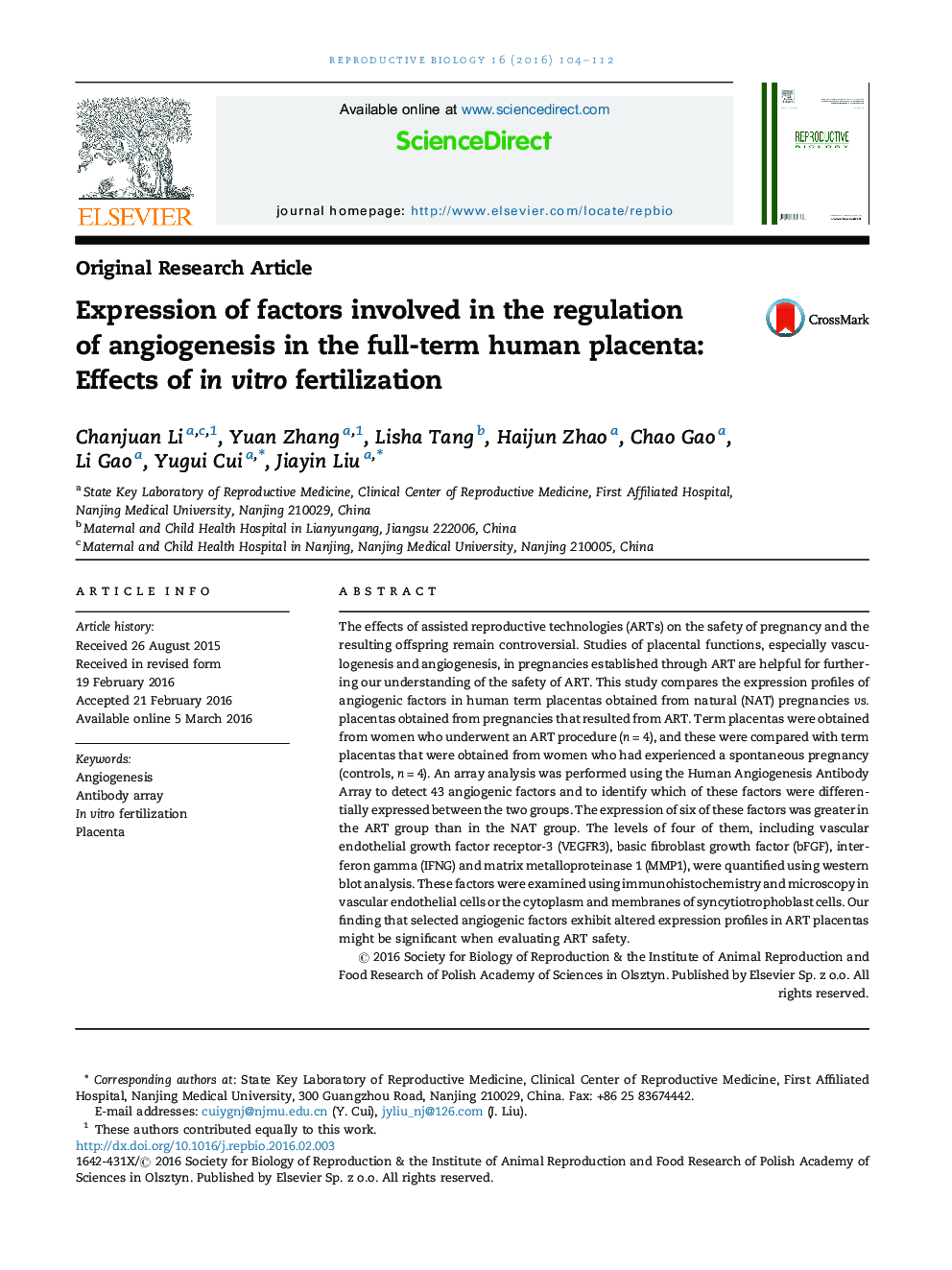| Article ID | Journal | Published Year | Pages | File Type |
|---|---|---|---|---|
| 2062331 | Reproductive Biology | 2016 | 9 Pages |
The effects of assisted reproductive technologies (ARTs) on the safety of pregnancy and the resulting offspring remain controversial. Studies of placental functions, especially vasculogenesis and angiogenesis, in pregnancies established through ART are helpful for furthering our understanding of the safety of ART. This study compares the expression profiles of angiogenic factors in human term placentas obtained from natural (NAT) pregnancies vs. placentas obtained from pregnancies that resulted from ART. Term placentas were obtained from women who underwent an ART procedure (n = 4), and these were compared with term placentas that were obtained from women who had experienced a spontaneous pregnancy (controls, n = 4). An array analysis was performed using the Human Angiogenesis Antibody Array to detect 43 angiogenic factors and to identify which of these factors were differentially expressed between the two groups. The expression of six of these factors was greater in the ART group than in the NAT group. The levels of four of them, including vascular endothelial growth factor receptor-3 (VEGFR3), basic fibroblast growth factor (bFGF), interferon gamma (IFNG) and matrix metalloproteinase 1 (MMP1), were quantified using western blot analysis. These factors were examined using immunohistochemistry and microscopy in vascular endothelial cells or the cytoplasm and membranes of syncytiotrophoblast cells. Our finding that selected angiogenic factors exhibit altered expression profiles in ART placentas might be significant when evaluating ART safety.
